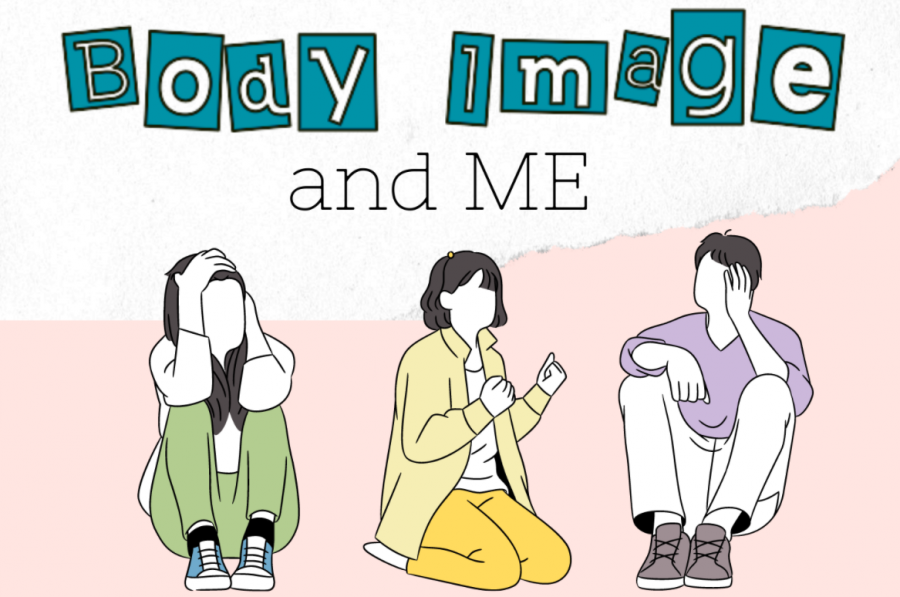Are “Perfect Bodies” Symbolic of Healthy Living?
As more dieting trends and their significance on social media, many fail to recognize what being healthy actually means.
Jan 3, 2021
When someone stands in front of a mirror, what is the first thought that comes to mind? For many, this action comes with pinpointing anything deemed “imperfect” about their physical appearance. But is health actually related to how you look? The truth is, society has made you believe that if you do not have the “ideal body type,” you are not considered healthy. This concept that healthy living is solely connected to looks is a tactic made by the diet industry who make a profit by selling products such as “weight loss teas” or fad diets such as the “keto diet.” Social media also commercializes a certain body type through photo editing. This ideal body that so many crave does not constitute health, usually doing more harm than good.
This façade that surrounds healthy living and the body that goes along with it is utterly false. Acts such as calorie counting, starving yourself, binge eating, constant dieting or otherwise disordered eating have been normalized by excessive diet culture. There is a common notion that reaching this ideal body type is when someone will be happy with themselves: if they have a smaller waist, bigger butt or defined abs. It seems like our worth as people now relies on physical appearances or how much we weigh; in reality, so many factors constitute height, weight and build that we can not make a fair comparison, nor will there ever be one truly “ideal” body type.
Take Taylor Swift, for example. As one of the most famous musicians of all time, she endured body dysmorphia for much of her teenage years. Swift realized it was not normal to feel like she might pass out after a performance because of her lack of nourishment. This type of toxic mindset has affected many girls in one way or another. Many will even begin to take unhealthy steps just to attain a certain look, costing them their mental and physical wellbeing.
I don’t really have an experience [with body image issues], but I feel that I am pressured by society everyday to look a certain way. When I see all these gorgeous girls post pictures and they have my ideal body, I will constantly count calories and restrict what I eat as a personal punishment for not looking a certain way,
— junior Kennedy Martin-Jones
Approximately 91% of women are unhappy with their bodies and resort to dieting with almost 95% of teens suffering from eating disorders. These statistics represent how ludicrous and obsessed people have become with appearing healthy instead of actually being healthy based on the societal norms imposed from a young age. Especially for women, this is an imminent problem and is further propelled by social media, where the main representation of “healthy” has come to include only 5% of the population. The younger generation has it even worse, with the increased use of photo editing online and poses to seem like everyone looks perfect all of the time. Gen Z continues to suffer from these harsh ideals and has moved away from building a strong relationship with their own bodies.
“I’ve learned to realize that standards are nothing more than a way to reduce people’s self worth. We’re more than just a body and as long as we’re healthy, it doesn’t matter what our body looks like,” freshman Leanna Anderson said.
Insecurities of others can actually often trickle down to people around them. When someone is already so judgemental of themselves they are likely to project it on to another person with comments such as “lose weight,” “you’re too thin” or “why post that?” The harsh standards developed by social media and the diet industry have caused people to look at the word “fat” or “plus-sized” as something less than worthy. Why should people feel the need to comment on someone’s body and determine their health based on how they look? Unless someone is a licensed medical professional, it makes no sense to make a visual diagnosis— something even a trained professional would not do. We have to debunk what has been engraved in our heads: good health does not come from counting calories or never eating sugar. The universalized definition of healthy living has failed the majority of society and lacks any room for changes in how some may differ in appearances and even personalities.
We live in a society where we always have to try harder or be better, which ultimately develops a mindset toxic to our emotional and physical wellbeing. The most simple thing you can do for yourself is take a step back and appreciate yourself, your body and who you are. That is the first step to creating a healthy lifestyle.
























